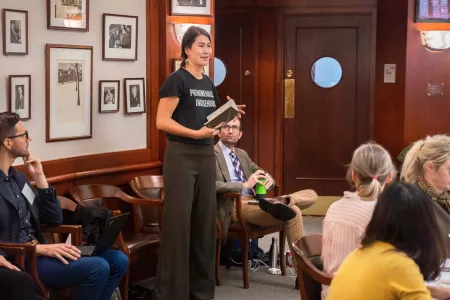We have all heard of the “Great Garbage Patch” of plastics in the Pacific Ocean, but plastic pollution in oceans around the world is a growing international problem. Even in the most isolated regions of our planet, plastics are found. Over the past decade, the amount of plastic debris in the previously pristine Arctic has increased considerably, to the point that in some remote locations Arctic Sea ice contains a greater concentration of microplastics than the highly publicized Pacific Gyre. The increase in plastics in the Arctic—including microplastic particles that can make their way into the food chain—are raising serious ecosystem and economic concerns for Arctic leaders and citizens.
Acting on these concerns, Iceland has chosen to highlight the issue of plastics in the Arctic Ocean as one of its focus areas during its Chairmanship of the Arctic Council from 2019–2021. Working with a broad coalition of partners, including the Protection of the Arctic Marine Environment (PAME) working group of the Arctic Council, the Icelandic Chairmanship is developing a Regional Action Plan on Marine Litter to begin addressing this growing threat to the area.

In support of that initiative, the Belfer Center’s Arctic Initiative and the Wilson Center’s Polar Institute co-hosted a workshop with the Icelandic Chairmanship in late October at the Kennedy School titled "Policy and Action on Plastic in the Arctic Ocean." The event convened global thought leaders, diverse stakeholders, and subject matter experts to begin developing a framework for tackling Arctic plastic pollution. Grounding the conversation in the latest science on sources and concentrations of plastic pollution, this workshop gave participants the opportunity to explore different policy levers and industry innovations that can shape an intervention strategy.
Discussions from that workshop will help shape the policy agenda at the "Symposium on Plastics in the Arctic and Sub-Arctic Region" which is being organized by the Icelandic Chairmanship and scheduled for April 2020.
